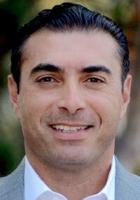California is suing three plastic-bag makers, alleging they misled people by falsely claiming their products were recyclable. State Attorney General Rob Bonta says the businesses violated a law that banned plastic bags that weren't recyclable. He says the businesses labeled reusable bags as recyclable even though recycling facilities cannot process them and they end up dumped in landfills, incinerated or in the state's waterways. The state filed a similar lawsuit against ExxonMobil about a year ago over the oil giant's plastic products. California passed a tougher law that takes effect next year banning all plastic shopping bags at grocery stores.
Talks on a treaty to address the global crisis of plastic pollution in Geneva ended without an agreement Friday. The session was adjourned and will be resumed at a later date. Nations were meeting for an 11th day at the United Nations office to try to complete a landmark treaty to end the plastic pollution crisis. They remain deadlocked over whether the treaty should reduce exponential growth of plastic production and put global, legally binding controls on toxic chemicals used to make plastics. The negotiations at the U.N. hub were supposed to be the last round and produce the first legally binding treaty on plastic pollution, including in the oceans.
Nations have started a crucial meeting to finalize a treaty to tackle the global plastic pollution crisis. Tuesday's meeting is the sixth and possibly final negotiation round. A major debate is whether to cut plastic production, with oil-producing countries opposing it. They argue that redesign, recycling, and reuse can solve the issue. Others, including some major companies, disagree. The United Nations Environment Programme highlights the urgency, noting millions of tons of plastic waste enter aquatic ecosystems annually. The U.S. opposes global production caps, focusing on waste management and recycling. The meeting in Geneva involves thousands of participants and aims to create a binding agreement.
The push to reduce plastic consumption was historically touted primarily as an environmental benefit but, in recent years, more evidence shows…
California is suing ExxonMobil for allegedly deceiving the public for half a century by promising that recycling would address the global plastics pollution crisis. Rob Bonta's office filed a lawsuit Monday. It's separate from a complaint filed by nonprofit environmental organizations. ExxonMobil is one of the world's largest producers of plastics. The lawsuits allege the company misled the public through statements and slick marketing campaigns. Bonta said less than 5% of plastics are being recycled into another plastic product in the U.S. despite being labeled as recyclable.
Plastic and other debris are seen on the shores of Cap Haitian beach, Haiti.
Some recent studies seem to suggest taking a new and more cautious look at plastic water bottles and frozen meal containers. A surge in research into plastics in food and water is raising questions about the accumulation of microplastics in the body. But the field is young and studies so far are limited. The World Health Organization report concluded two years ago that there was no clear risk to human health. But researchers only started measuring plastics in the human body — and trying to assess the health effects — in recent years.
Plastics have evolved from cheap substitutes to drivers of innovation, offering customizable properties that surpass traditional materials. En…
California in 2014 enacted the nation's first ban on single-use plastic shopping bags. But state Attorney General Rob Bonta says the thicker, reusable plastic bags that many retailers now use may not be recyclable as required by law. He's asked six bag manufacturers to back up their claims the bags can be recycled. He's threatened legal action that could include banning their use or issuing fines. The American Chemistry Council says manufacturers disagree with Bonta's characterization, and two of the companies told The Associated Press they comply with state law. The other four did not respond to requests for comment.













